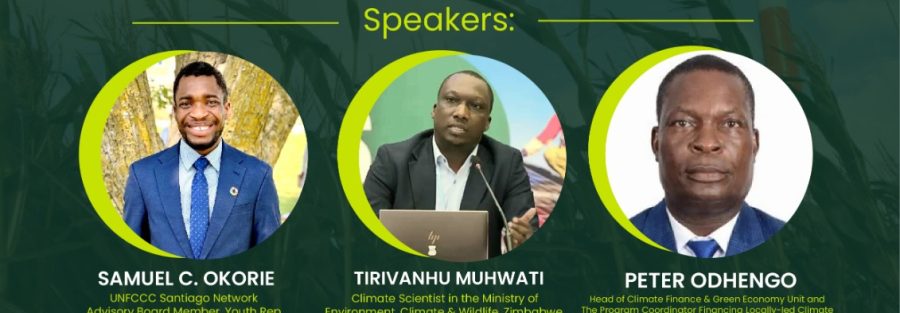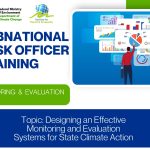Nigerian Civil Society giant, the Society for Planet and Prosperity (SPP), is convening a key engagement among African climate change stakeholders as the continent prepares for COP30 in Belém.
Despite only 13 out of 54 African countries having submitted their NDCs 3.0, the main hindrances can be attributed to limited time, technical capacity gaps, and inadequate financing.
As countries work to close these gaps before submission, it is important to reflect on the development process, and most importantly, implementation needs. These would help shape Africa’s stance and messaging at COP30.
SPP is therefore convening a multi-country stakeholders’ webinar to discuss the NDCs situation in Africa, with the view of interrogating how COP30 can be leveraged to advance practical efforts that will support implementation.
The event, scheduled for 11a.m West African Time on Friday, 31 October, 2025, seeks to bring African stakeholders together to discuss the current landscape of national climate commitments (NDCs) in Africa, hindrances to effective implementation, the intersection between NDCs implementation and sustainable development, key messaging for COP30, etc.
Entitled “COP30: Coordinating Ambitious NDCs Development and Implementation in Africa”, the virtual webinar will feature a presentation on Africa’s current NDCs landscape, interrogate the governance framework that should guide NDCs development and implementation in the continent, highlight country, gender, and youth experiences and solutions, and recommend what should be the focus of African countries during negotiations and bilateral at COP30. While this year has been mostly dominated by conversations on NDCS 3.0, submissions as at 1st October, 2025, still leaves a gap of over 30GtCO2e. What that means is that either the remaining countries overstretch their ambitions or the 61 that already submitted retrieve theirs and increase ambition, the path to reaching expected goals will include ensuring that implementation goes beyond commitments.
Several experts have identified that exploring other options for emissions reduction can help enhance the final reduction output by 2035. Yet little has been said about supporting the conditional targets of developing countries, which can help expand targets.
This webinar seeks to discuss all of these issues while framing a message that can help guide Africa’s multilateral and bilateral engagements at COP30, recognising the key intersection between climate action and Africa’s sustainable development.
Speakers include: Prof. Chukwumerije Okereke, President, SPP (Host), Iskander Erzini Vernoit, Executive Director, IMAL Initiative for Climate and Development, Gbemisola Titilope Akosa, Executive Director, Centre For 21st Century Issues (C21st), Samuel C. Okorie, UNFCCC Santiago Network Advisory Board Member, Youth Rep, Peter Odhengo, Head of Climate Finance and Green Economy Unit, Financing Locally-Led Climate Action (FLLoCA) Programme, Kenya; Tirivanhu Muhwati, Climate Scientist in the Ministry of Environment, Climate and Wildlife, Zimbabwe, Gboyega Olorunfemi, Project Lead, SPP, and Nnaemeka Oruh, Senior Policy Analyst (Climate Change), SPP.
Register to join the event here: https://shorturl.at/uLZ17





